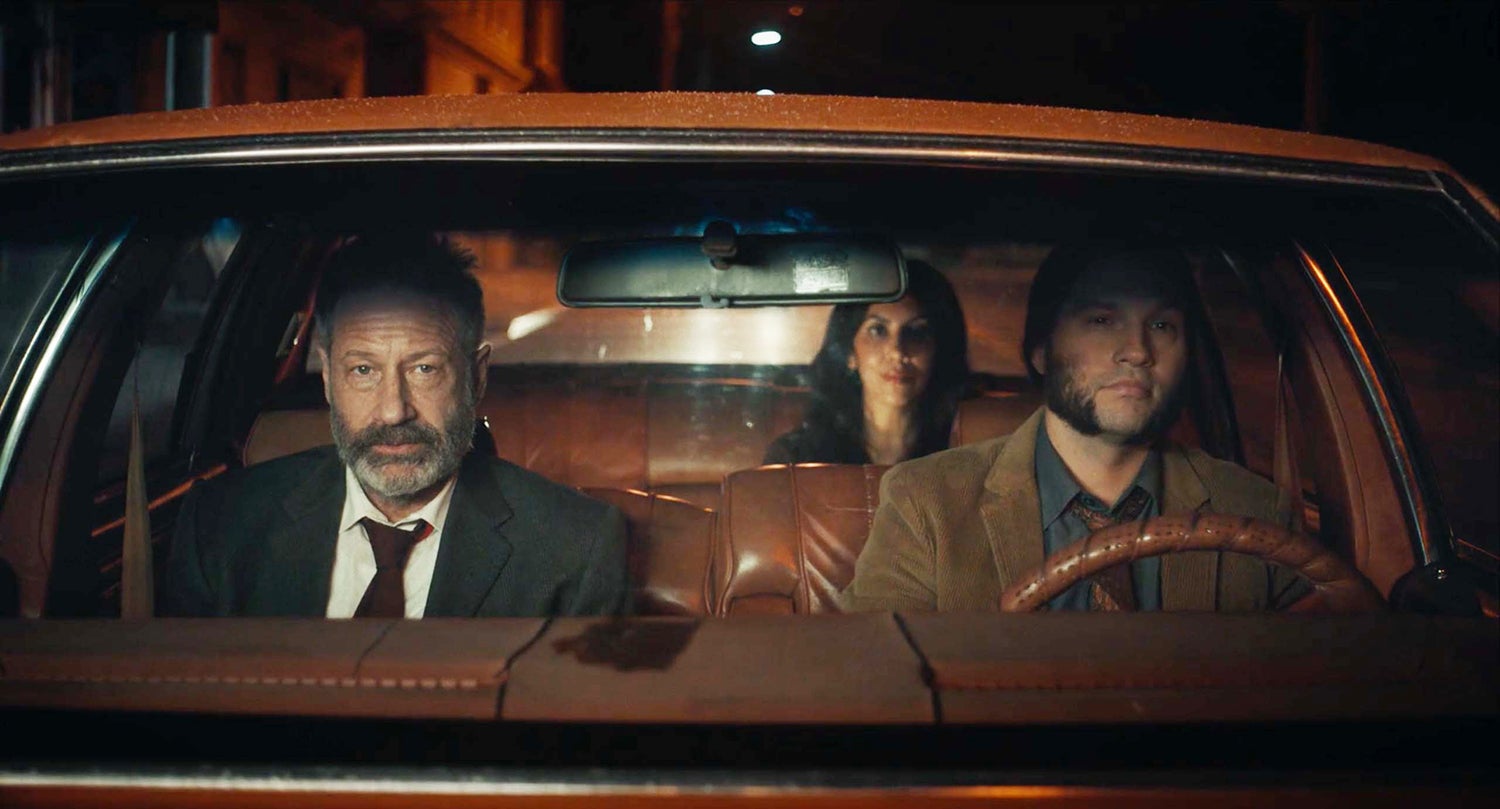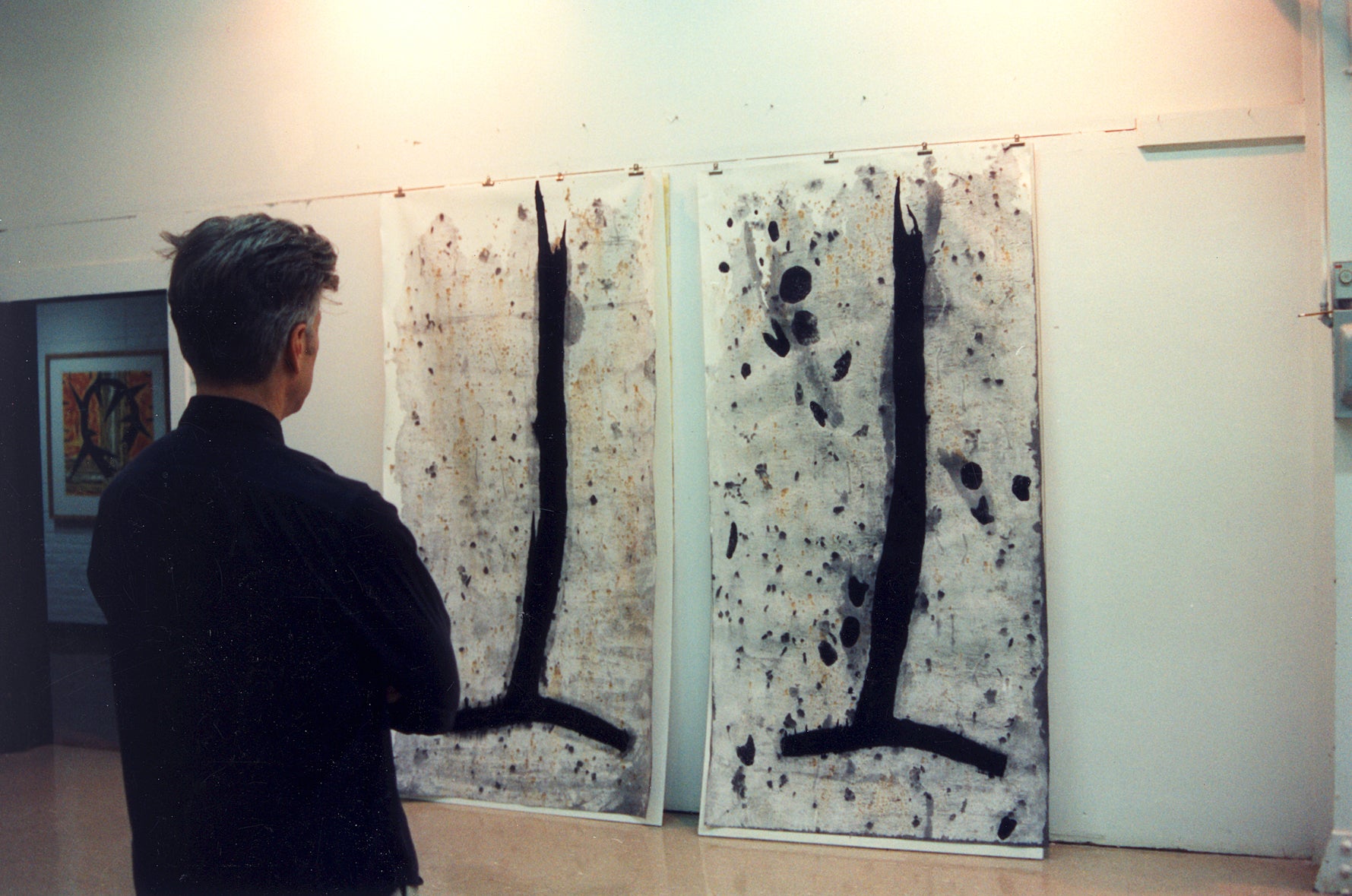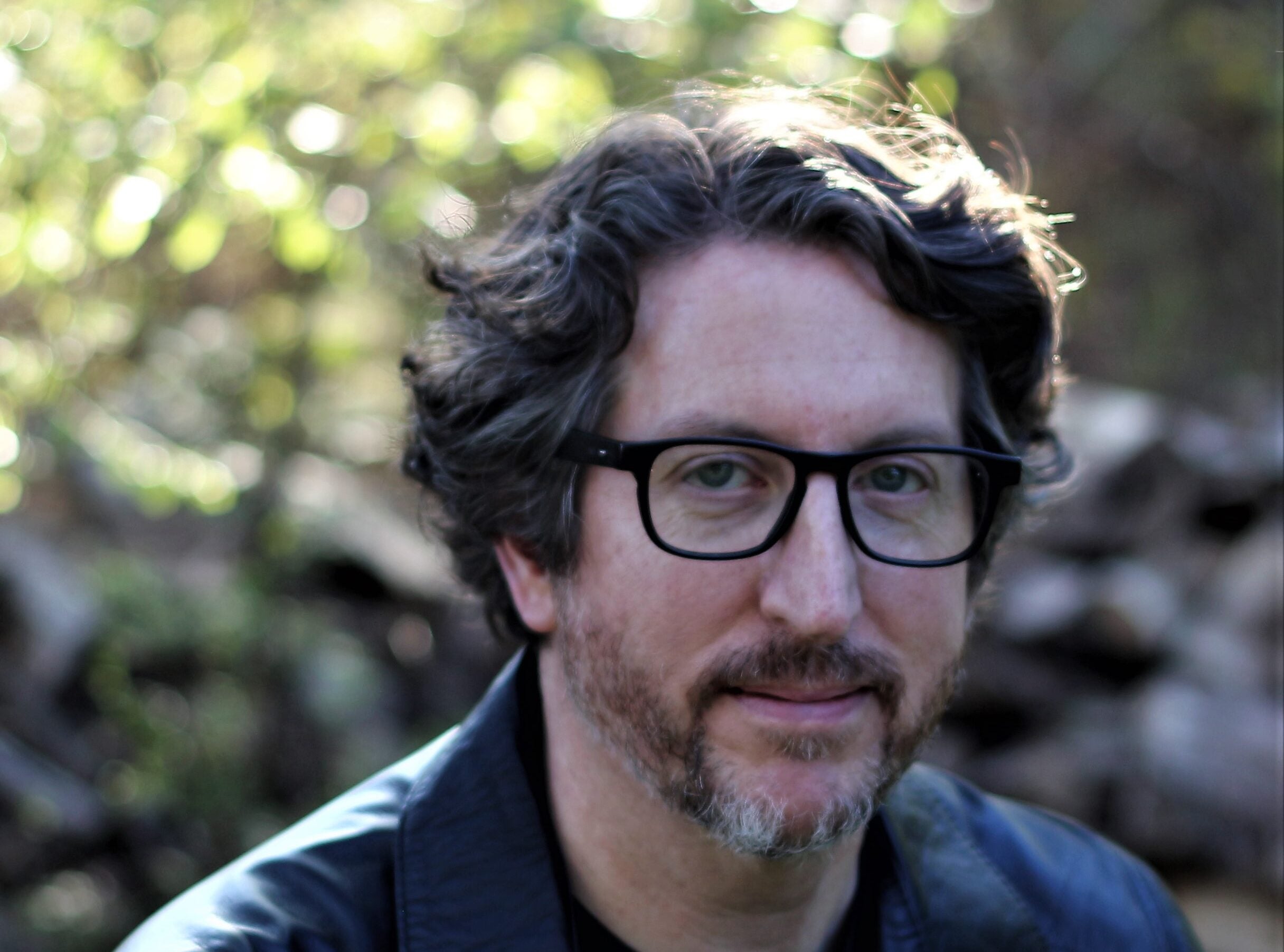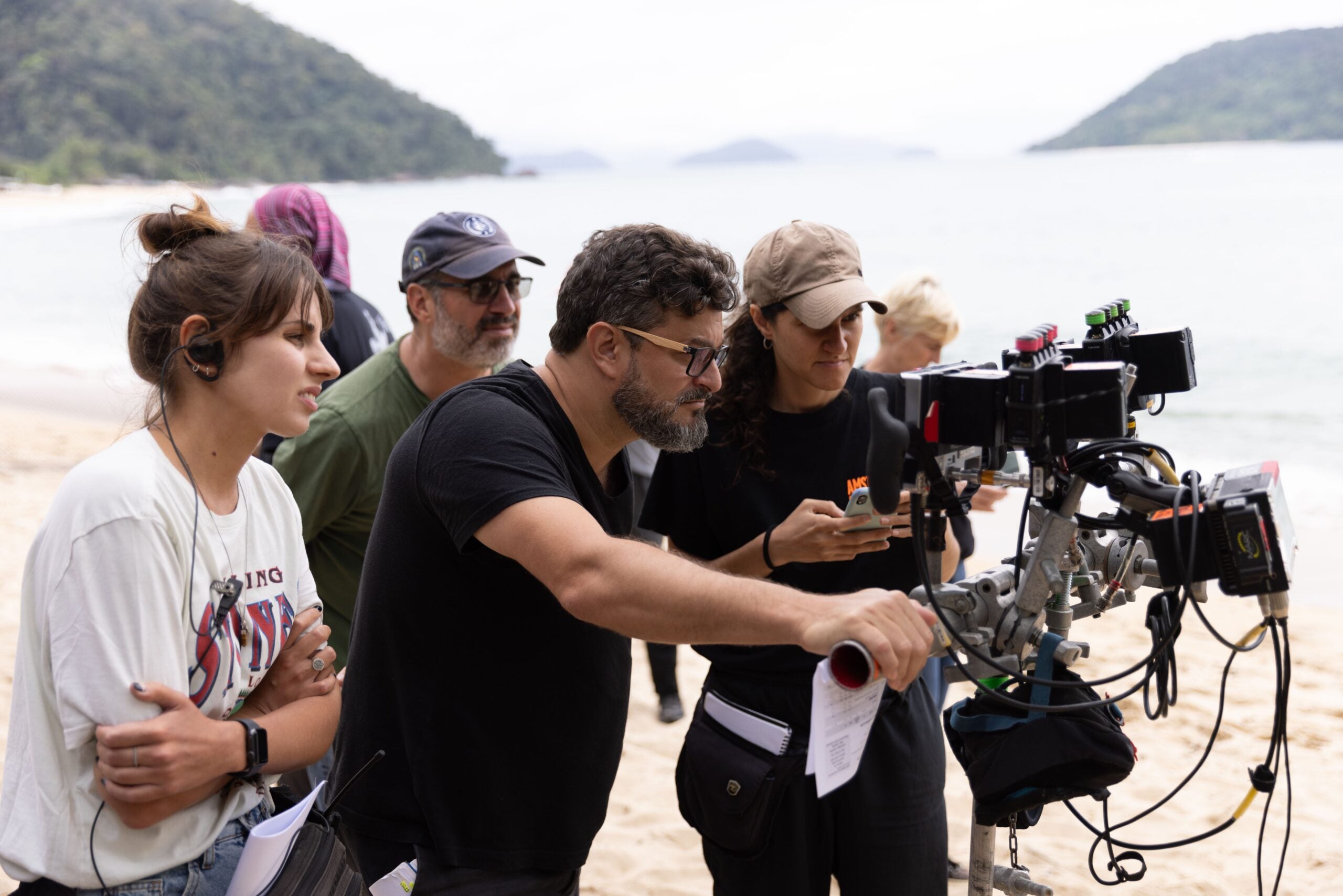Editor’s note: This story contains language that might be inappropriate for some readers.
There’s a quote from acclaimed author Samuel Beckett’s story, “Worstward Ho” that seems to be a driving force in a lot of what award-winning actor David Duchovny is working on these days.
“Ever tried. Ever failed. No matter. Try again. Fail again. Fail better,” Duchovny recites to WPR’s “BETA” host Doug Gordon.
Stay informed on the latest news
Sign up for WPR’s email newsletter.
The finale of that quote serves as the title of Duchovny’s forthcoming podcast from Lemonada Media, “Fail Better,” where he and his guests — like Ben Stiller, Bette Midler, Sarah Silverman, and “Freakonomics’” Stephen J. Dubner — will explore how failure can shape lives.
“In my life, I’ve never learned anything from something that went well. I only learned through failing either personally or professionally,” Duchovny said. “The creation of resilience or the letting go of regret or shame that’s around failure, it’s very interesting to me to have those conversations.”
It’s a philosophy akin to one of the main themes in Duchovny’s indie dramedy, “Bucky F*cking Dent,” about a diehard Boston Red Sox fan coming to grips with a terminal illness and reuniting with his son during the heartbreaking 1978 Sox season.
That season ends for the Sox when unheralded New York Yankee shortstop, Bucky Dent, became a legend for hitting the go-ahead homerun in a playoff game.
“(‘Fail Better’ is) very, very similar to the themes of ‘Bucky F*cking Dent’ because of the final scene with Marty and Ted. (Marty is) heartbroken that Bucky has hit this homerun because he’s a Boston fan, but he ends up saying, ‘He’s like us, Ted. He’s just a regular guy. So God bless Bucky.’ He ends up blessing him,” Duchovny said.
In addition to acting, Duchovny is an accomplished author. The film is based on his novel of the same name (that he says was originally written as a screenplay) and is directed by him, as well.
“I wrote the screenplay and then it was just sitting around, and I hadn’t been able to make it. And I got older and I thought, ‘I really want to tell that story.’ And I just thought, ‘Well, I want to get that story out there in whatever form. So, if it has to be a novel, let’s see what kind of novel it makes,’” he said. “The novel ended up being the most extensive directorial research you could ever want.”
As a native New Yorker, Duchovny was fascinated by the legend of Bucky Dent from the perspective of Boston fans. He thought it would make a potent backdrop to his story.
“In my experience of writing a novel, what happens is you seize…some shell of an idea, and then other ideas start to stick to it. And you start to see a shape where all these ideas are coherent. And, with ‘Bucky,’ I think that it was initially just hearing that term,” Duchovny said of the titular moniker Bucky Dent is nearly unanimously referred to as in Beantown.
“Americans seem to be obsessed with winning, and I think losing makes us human way more than winning.”
David Duchovny
“I was in Massachusetts, and I’d never heard that term before. Having grown up in New York, Bucky was a hero. He wasn’t the villain, which he is for Boston fans. And the phrase just stuck with me, and I thought it was funny and it caught my ear,” he continued. “Americans seem to be obsessed with winning, and I think losing makes us human way more than winning.”
Duchovny stumbled on the perfect scenario to share this story which contains very personal elements: “I was looking philosophically at that phenomenon around me, and all of a sudden, just this idea of this unheralded guy sneaking up and dashing a city’s hopes, you know, this unheralded guy becoming hugely successful in this one moment. I could hang my ideas on it.”
Logan Marshall-Green (“Prometheus” and “Upgrade”) plays Marty’s son, Ted (named, naturally, after Boston Red Sox legend, Ted Williams), who moves home to help care for his father, and Stephanie Beatriz (“Brooklyn Nine-Nine” and Disney’s “Encanto”) plays Marty’s end of life nurse, Mariana.
The three of them grapple and reflect and ultimately support Marty’s decision to forgo any further medical help with his cancer diagnosis and end his life on his own terms. Duchovny tackles this material with his trademark deadpan, dark humor which balances the film’s tone nicely.
“My entire creative life as an actor, as a writer —that’s my tone,” he said. “I’m going for laughs. I’m going for absurdity. And then I’m going for tears and I’m going for the heart.”
Duchovny cites “The Holdovers” and films like it as movies he falls in love with and have that same sensibility that he aims for with their intersection of drama and comedy.
“I realize it’s a hard tone sometimes because, especially in Hollywood, people like to define things. They like it to be easily defined,” he said. “So if you had to pitch this movie to somebody, (it) would be tough to pitch because you’d say you’re laughing a lot and then you’re crying.”
In that sense, you’d be hard-pressed to find a better casting than Beatriz in her role of Mariana. Best known for her comedic turns, Beatriz hides a deep well of pain behind her eyes as she finds a kindred soul in Marty and a potential love interest in Ted.
“I knew Stephanie only from ‘Brooklyn Nine-Nine,’ really. And it’s my opinion that people who can do comedy can do anything. Not necessarily vice versa,” he says. “I just thought she could really do this.”
A scene late in the movie where Mariana and Ted discover some painful truths plays out over the phone and Beatriz shines, conveying so much heartbreak with a few simple gestures.
“She just had it at her command. She could just do it. She’s a deep person, and she cries this big, fat tear that you kind of see,” Duchovny explained. “And that kind of stuff is just magic when it happens.”
In addition to a striking physical resemblance, Marshall-Green and Duchovny have good on-screen chemistry as father and son and treat a bulk of the movie as a two-hander trading barbs and life lessons and unspoken truths to each other.
Duchovny said he appreciated working with Marshall-Green. He said that Marshall-Green pushed him to be prepared because he was big into rehearsing scenes ahead of time and had read the source novel.
“A month before we were shooting, we were just reading through scenes, and he actually read the novel and pitched a couple of lines and moments that were in the novel that weren’t in my screenplay that I eventually ended up putting back in,” Duchovny said. “They’re mostly Marty’s lines. It wasn’t even Logan being like, ‘Hey, I like this line for myself.’ It was really just, ‘I love this line for the movie.’”
Duchovny also recruited a strong contingent of his “Californication” co-stars, including Pamela Adlon and Evan Handler, for supporting roles in “Bucky F*cking Dent.” He said he appreciated the creative short hand that they all shared, especially on a smaller budget indie movie.
“Pam, who cracks me up, she was kind enough to come in and do that in one day. And then Evan, as well. I mean, I worked with him for seven years,” Duchovny said. “A lot of these small roles, they really had to come in and hit. We didn’t have time to futz around with them.”
Duchovny said he was inspired directorially by ‘70s films like “Harold and Maude” or “Shampoo.”
“I think ‘Five Easy Pieces’ is definitely a touchstone for this, because of the father-son relationship, but it’s less of a shaggy dog story than ‘Five Easy Pieces.’ It’s more … plot-driven than that movie. You know, the ‘70s, you could get away without really having a plot to hang something on, but you can’t anymore.”
Duchovny hasn’t lost the plot, either. In addition to “Fail Better” and “Bucky F*cking Dent,” and also being a musician and author, Duchovny is returning to prestige television with his role in Amazon Prime Video’s upcoming series, “Malice,” alongside Carice van Houten (“Game of Thrones”).
“Bucky F*cking Dent” will be in select theaters and On Demand beginning June 14th





